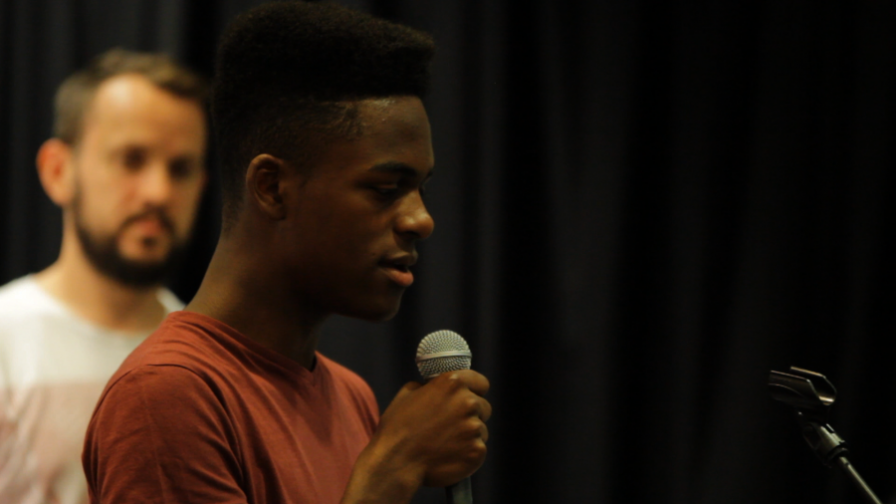What is the difference between being a music mentor and a music leader?

Jack Kingslake is the Mentoring Coordinator at Rhythmix and since taking on the role finds that the question of what exactly a music mentor is, is one he finds he has to attempt to answer on a regular basis. Jack has worked for many years as a music mentor, and was trained through the original Youth Music Mentors programme but still finds the line between tutor and mentor a bit blurry.
As part of my role I have had to train and support a team of professional music mentors who have been tasked with the job of mentoring young people from a range of backgrounds between the ages of 13 and 19 in the Surrey area. Many of these music professionals have already worked for many years as music leaders / tutors for Rhythmix and other organisations so it has been important to clarify exactly what is unique to the role of mentor, and what exactly we are expecting them to do with the young people they have been matched with.
Having researched the concept of mentoring whilst putting together my training programme, I came across hundreds of different definitions, mostly geared around professional business mentoring. For example:
"Mentoring is a protected relationship in which learning and experimentation can occur, potential skills can be developed, and in which results can be measured in terms of competencies gained". - Audrey Collin
and….
"Mentoring is a long term relationship that meets a development need, helps develop full potential, and benefits all partners, mentor, mentee and the organisation". - Suzanne Faure
While some of these were useful, most of them focused entirely on the professional development of the mentee, failing to acknowledge the emotional and personal development that mentoring can provide. In the context of music mentoring with young people from challenging circumstances, the emotional support and positive role modeling that can be offered by a mentor is possibly more important than the more measurable career development that can be achieved.
That is not to say that the focus of day-to-day mentoring sessions shouldn’t be the mentee’s relevant musical progress, and in this sense much of the work of a mentor may end up being one-to-one tuition, recording and production or careers advice and research. However sensitivity to the emotional needs of the mentee, and an empathic approach to every interaction is essential when working with young people from challenging circumstances, and this must form part of any definition of music mentoring in this context.
Many of the young people that we have targeted for the Rhythmix mentoring programme have been repeatedly let down by adults and have struggled to engage with teachers or carers, but they all have music as an important and often cathartic aspect of their lives. Some aspire to ‘make it’ in the music industry, while others make music for the happiness, social kudos or sense of achievement that it can bring. The mentor’s job is to use a shared passion for music to connect with the young person. If a positive connection is made, then genuine mentoring can take place and the mentor can support their mentee to set realistic, achievable targets. These may well include professional or educational goals, but may equally include very personal musical targets such as; “I want to finish writing my song about my relationship with my mum and perform it to her” (which was a genuine target set by one of our mentees).
It is essential that mentors are prepared to engage with their mentee on this emotional level, and on the basis of this, the definition of mentoring that I use in my training is:
“To offer professional and emotional support to individuals (or groups), to help them to set targets and achieve their own goals within a specific timeframe”
A bit dry I realise but it’s fairly easy to understand and straight to the point.
While it cannot be denied that an emotionally intelligent approach is going to be useful in any music leadership role, and the setting of targets is common to many music education settings; it is only as mentors that we are able to focus so intently on the specific needs of individual young people.
What do you think?
